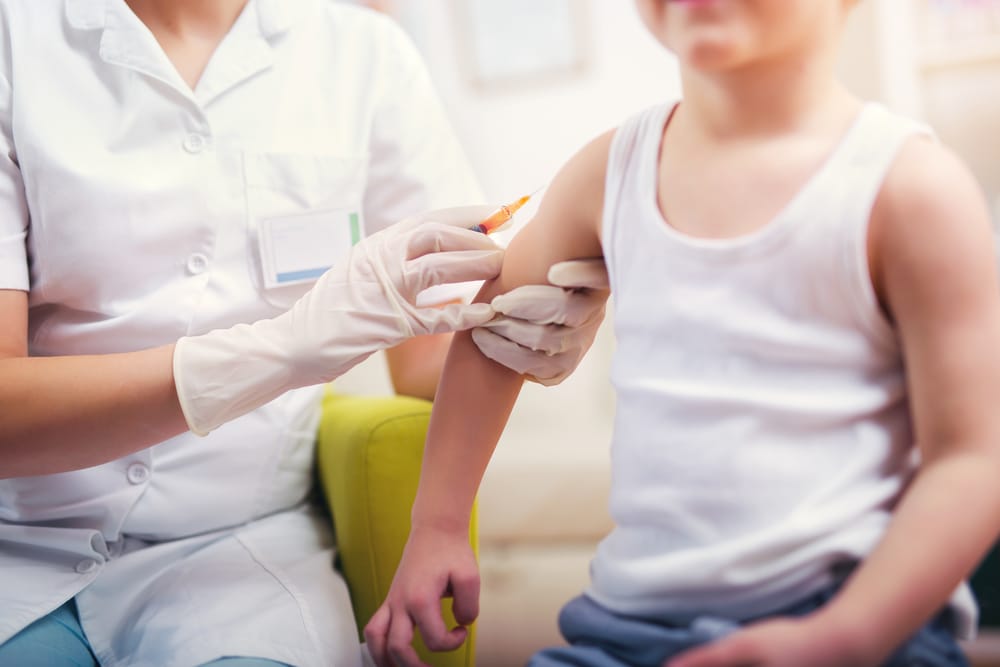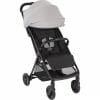Parenting
Parents Are Vaccinating Their Kids As Measles Cases Rise
In recent times, there have been multiple outbreaks of measles in regions with low vaccine uptake in the UK. Measles can rapidly spread among unvaccinated individuals, particularly in childcare facilities and schools. Administering routine vaccinations can prevent measles and other common childhood diseases.
Nothing is more crucial for parents than ensuring the well-being of their children. Whether it involves comforting teething pain or carefully applying a bandage to a scraped knee, we go to great lengths to safeguard our little ones and keep them comfortable.
Ensuring that our children receive all their scheduled vaccinations is one of the simplest yet most effective ways we, as parents, can contribute to providing them with a healthy beginning in life. These vital childhood vaccines shield our children from severe infections like measles and whooping cough, offering them the best defense against these potentially life-threatening diseases. Without vaccination, they lack protection.
Typically, infants receive the initial MMR vaccine dose at age 1, followed by a second dose at 3 years and 4 months. Two doses are necessary for optimal protection against measles, mumps, and rubella, all highly contagious infections.
The early symptoms of measles often resemble those of a cold, such as a runny nose, cough, fever, and sore eyes. After a few days, a rash may develop on the face and body, typically red but harder to discern on darker skin. White spots in the mouth may also be noticeable. If you suspect your child has measles, contact your GP prior to visiting any healthcare facility, such as A&E or the GP clinic, to prevent the spread of infection to others.
Measles can lead to severe complications, necessitating hospitalization or resulting in lifelong disabilities. In tragic instances, measles can even be fatal. Although the MMR vaccine (for measles, mumps, and rubella) is secure and highly efficient, misconceptions and apprehensions about vaccinations have left some children unprotected and at risk of severe illness.
Comprehensive global research has demonstrated that vaccination is the most secure and effective approach to safeguard children. Studies indicate that childhood vaccinations prevent over 5,000 deaths and more than 100,000 hospital admissions annually. It is crucial for us as parents to grasp the significance of immunizing our children against childhood diseases, the dangers of contracting these illnesses, and how to take steps to protect them as well as our broader families and communities.
If you are unsure whether your child has received all their vaccinations or have concerns about missed doses, it’s advisable to contact your GP office for verification. They can inform you if your child requires any vaccinations and guide you on scheduling their appointment.
Remember, if your child missed a vaccination, there’s no need to worry. Simply schedule an appointment with your GP practice promptly to catch up on any missed doses. Routine childhood vaccinations are complimentary and undergo rigorous testing to ensure their safety and efficacy. While all medications can have side effects, vaccines are among the safest options available.
Without vaccination, there is no protection. Arrange an appointment with their GP practice or learn more about routine childhood immunizations here.
How we create our content
Mother & Baby is committed to delivering valuable and reliable information, which is why we exclusively rely on reputable sources like the NHS, peer-reviewed medical research, or advice from accredited medical professionals such as doctors, GPs, midwives, psychologists, gynecologists, or other healthcare experts. Whenever possible, our articles are medically reviewed or endorsed by experts. Our writers are kept informed of the latest safety guidelines for all recommended products and adhere to strict reporting standards to ensure our content is from trustworthy origins. Always seek guidance from a medical professional if you have any concerns. Our articles are not a substitute for professional advice from your GP or midwife.

















